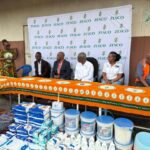…Brian Mundubile wonders why Government has not explained the mystery of the marooned 61 containers of drugs worth US $ 25 million which remained stranded at a warehouse while patients were dying due to lack of drugs and why those responsible have not been prosecuted.
By Nation Reporter
The forensic audit report into the Zambia Medicines and Medical Supplies Agency (ZAMMSA) is nothing but a strategic smokescreen, designed to deflect public scrutiny from much larger scandals including—the unexplained marooning of 61 containers of medical supplies for over six months at a private warehouse, says Mporokoso Member of Parliament Brian Mundubile.
Meanwhile it has also been disclosed that ZAMSA has been running without a Board for almostt one year and that the Ministry has advertised for a Director General, with fears that the candidate would be handpicked to be holden to the Ministry, instead of a properly constituted Board.
Mundubile has accused the government of orchestrating a cover-up to shield those responsible for what he described as “systemic rot” within the Ministry of Health, and questioned why no one has been held accountable despite the containers being traced but never distributed.
“This ZAMMSA report is a diversion,” he said. “The real story is about the 61 containers that sat idle in a warehouse for months while patients went without medicine. No one has explained how that happened, and no one has been arrested. Instead, the nation is being distracted with vague talk of further investigations.”
Mundubile, a former Minister and Leader of the Opposition in Parliament, said the pattern of secrecy and delay was indicative of a high-level cover-up.
“This was not an administrative error. It was a calculated operation. The fact that containers filled with essential medical supplies were left marooned for half a year, while officials blamed systems and silence, is not just negligence—it borders on criminality,” he said.
The issue, he insisted, is no longer about ZAMMSA alone. “It has exposed the rot in the entire Ministry of Health. The government’s failure to act, investigate meaningfully, or even communicate clearly speaks volumes.”
He further pointed to revelations from former ZAMMSA Director General Victor Nyasulu, who alleged that some procurement contracts required clearance from officials at State House—raising serious questions about political interference in procurement processes.
“This is how institutions collapse. When political power overrides procurement law, it becomes about patronage, not public health,” Mundubile warned.
He also expressed concern that ZAMMSA has operated without a board for almost a year, and noted that the Ministry is now advertising for a Director General—a move some fear will result in a handpicked loyalist rather than a professionally selected candidate through an independent board.
Meanwhile, Victor Nyasulu, who broke his silence on July 15, 2025, revealed that he was dismissed in 2023 over the 61 containers but was never given a chance to defend himself. Months later, he was arrested—on unrelated charges of failing to follow procurement guidelines—but has never been brought to court.
“I was fired over the containers,” Nyasulu said. “Yet I’ve never been charged for that. Instead, I’m on bond for something completely different, and I’ve never had my day in court. If the issue was truly the containers, where is the report? Why is it hidden from the public?”
Nyasulu also criticized the handling of the audit process, noting that the so-called “interim” report used against him has never been presented to Parliament or made public.
“There’s too much confusion. I was dismissed, arrested, and bonded—yet I remain uncharged. The President talks about action, but on what evidence? This is clearly a cover-up,” he said.
He went further, alleging that officials within the Ministry of Health are scheming to regain control of the procurement process for personal gain, and that the prolonged absence of a ZAMMSA board is part of that agenda.
President Hakainde Hichilema, in a recent address, reiterated his administration’s commitment to fighting corruption and promised that “no sacred cows” would be spared. He said findings of the forensic audit had been shared with donors and investigative agencies.
But Mundubile was dismissive of the assurances. “The President’s words ring hollow. The key figure in the containers scandal is on bond and has never been charged for the very issue that cost him his job. How is that justice?”
As pressure mounts and suspicions deepen, the marooned containers remain a symbol of unanswered questions and unacknowledged wrongdoing. To critics like Mundubile, the forensic audit is not a step toward justice—but a calculated attempt to shift the spotlight away from a scandal that still festers at the heart of the health system.








